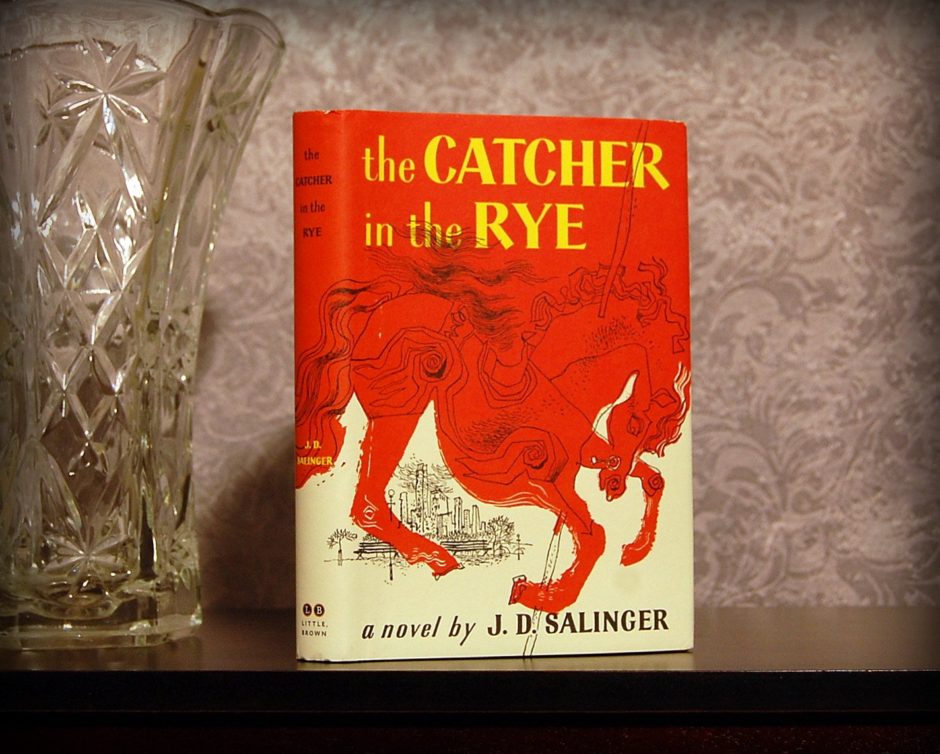Jerome David Salinger’s iconic novel about adolescent angst and alienation, The Catcher in the Rye, has sold 65 million copies in 30 countries since its publication in 1951. Acclaimed as a masterpiece of American literature, it catapulted its author to fame, a status he categorically rejected as he withdrew from the limelight. Having moved from the glitter of New York City to the solitude of rural Vermont, Salinger became a recluse who eventually abandoned his craft.
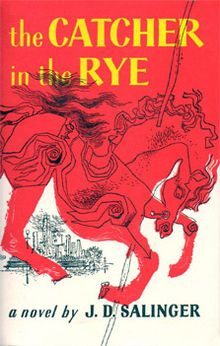
The arc of his journey from obscure aspiring novelist to misanthropic legend is recreated imaginatively in Danny Strong’s forceful biopic, Rebel in the Rye, which opens in Canadian theatres on October 6. Based on Kenneth Slawenski’s authoritative biography, J.D. Salinger: A Life, it unfolds over a 15-year period from 1939 onwards, and is set in a variety of locales as its ambitious half-Jewish protagonist struggles for recognition as an upcoming man of letters.
Our first glimpse of Salinger (Nicholas Hoult), known as Sonny to his parents and as Jerry to his friends, is in Manhattan’s tony Stork Club. There, amid the din of idle chatter, he introduces himself to an attractive young socialite named Oona, the 17-year-old daughter of the famous playwright Eugene O’Neill. He’s still an unpublished writer, but his ideas already have been formed. “Fiction,” he opines, “is more truthful than reality.”
Salinger wants to go back to school to study creative writing. His supportive mother, Miriam (Hope Davis), approves. She is of the opinion that her son is enormously talented. Sol (Victor Garber), his practical and aloof father, wants him to join the family’s prosperous business. Salinger prevails and enrols in a short story writing course at Columbia University taught by Whit Burnett (Kevin Spacey), the editor of Story magazine, an outlet for new and established writers. Salinger, exhibiting cheeky behavior in class, manages to annoy Burnett. Nonetheless, Burnett recognizes that his outspoken and rebellious pupil possesses a distinctive literary voice that should be nurtured.
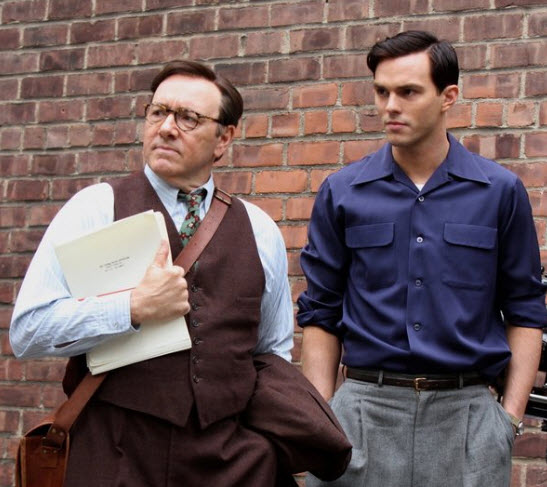
Salinger’s fondest hope is to be published by The New Yorker, but his first submission is sent back. Burnett warns him he may receive rejection slips for years to come. His father puts it more brutally: “What makes you think you have anything to say to people?”
Salinger finally achieves a breakthrough when Burnett, his mentor by now, publishes his short story, for which he receives a check for $25. The New Yorker, meanwhile, conditionally accepts one of his stories, but it requires two revisions that Salinger refuses to make, much to the disappointment of his agent, Dorothy Olding (Sarah Paulson). Salinger’s story hinges on Holden Caulfield, a compelling character he’ll flesh out in The Catcher in the Rye, a book he composes at Burnett’s suggestion.
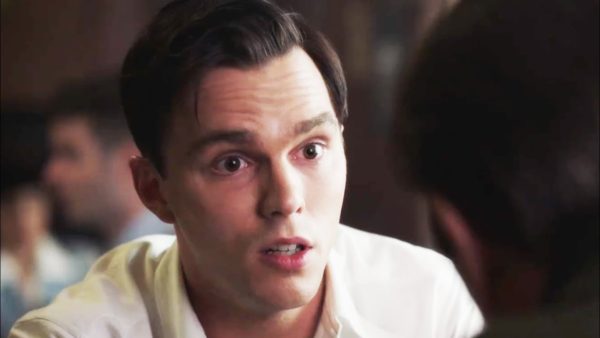
The film veers off in a far different direction when Salinger joins the army following the Japanese bombing of Pearl Harbor on December 7, 1941 and then participates in the 1944 Normandy invasion. Later, he encounters ragged inmates in a Nazi concentration camp. These experiences, so pivotal in his development as a novelist, are portrayed very fleetingly.
Rebel in the Rye fast forwards to 1946, when he returns to the United States with a German wife and the psychic wounds of war and Nazi atrocities. A writer’s block gives way to the joyous news that The New Yorker will publish his short stories. Salinger, having bought a cabin in the country, finishes The Catcher in the Rye. “It’s about a troubled kid during the Christmas holidays,” he tells an editor.
The publishing house to which he’s submitted the manuscript cannot appreciate the true worth of his novel and requests a major rewrite. Salinger balks. Another publisher pronounces it a gem, and Salinger’s career is launched in earnest. As the movie heads toward its denouement, he remarries and retreats further into himself to shut out all distractions. After a while, he decides to lay down his pen altogether, a decision his agent appears to understand.
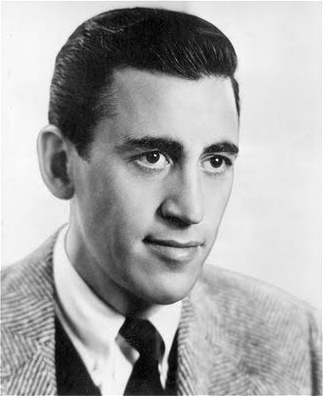
This eminently accessible film draws a credible portrait of an obsessed, self-absorbed writer. As Salinger, Hoult is convincing. Spacey, one of the best actors of his generation, is in fine form as Salinger’s avuncular advisor and friend, while Davis is particularly effective as Salinger’s caring and sensitive mother. The rest of the cast also adds lustre to a movie that seriously attempts to breathe life into one of America’s greatest novelists.
